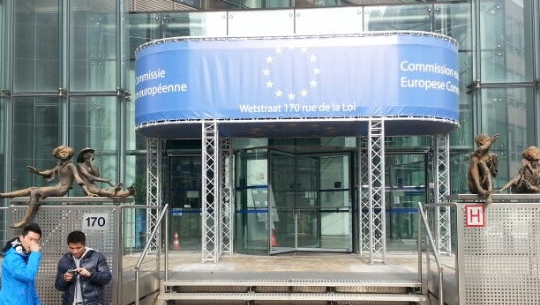Phil Hogan nominated as EU trade commissioner

The Irish Times | 10 September 2019
Phil Hogan nominated as EU trade commissioner
by Sorcha Pollak, Pat Leahy
Irish European Commission Phil Hogan has been nominated as the European Union’s next trade commissioner.
Mr Hogan, who has served as agriculture commissioner for the past five years, was nominated by the incoming commission president Ursula Von Der Leyen.
In a statement on Tuesday Mr Higan said he was pleased to have been nominated to one of the most important economic portfolios.
“International trade is the lifeline of the EU economy and its economic importance is illustrated by the fact that one in every seven jobs in the EU is supported by the export of goods and services.”
Mr Hogan said that as a result of the European Commission’s trade agenda, the EU has become the “largest exporter of agri-food products in the world, with exports of €138 billion last year, supporting millions of jobs, many of them in Ireland.”
Mr Hogan said there was enormous untapped potential for job creation from the implementation of trade agreements.
“Ireland is a small, open, export-orientated economy, which has been a very significant beneficiary of EU trade policy and the growth of exports over many years. Today, it is estimated that that exports to countries outside the EU support around 650,000 jobs in Ireland, particularly in such sectors as agri-food, pharma, medical devices, med-tech and financial services,” he said.
Ms von der Leyen also caused something of a surprise keeping Denmark’s Margrethe Vestager in the critical competition policy role.
In this role Ms Vestager has been fighting monopolies and imposing hefty fines on tech giants Apple and Alphabet unit Google.
Competition is seen as a top job, with Germany and France pressing for the bloc to soften its anti-monopoly rules to help European industrial champions compete with rivals from China and the United States.
Mr Hogan’s name had been linked to the trade job since he was nominated for a second term by the Irish Government in July.
The appointment will be viewed as a significant signal to the British government, as Mr Hogan will be responsible for overseeing any negotiations with the UK on a future trade deal – the next phase of Brexit negotiations if there is an agreement on an orderly British withdrawal.
Commissioners act on behalf of the EU and not their national member states, and take an oath to that effect.
However, it is accepted that they are mindful of the interests of their own countries, even if they do not always agree with their government.
The trade portfolio is one of a handful of commissioner jobs with significant clout, and is one of the most sought-after positions.
It reflects Mr Hogan’s stature as a heavyweight of the new commission.
As commissioner for agriculture, Mr Hogan strongly defended the controversial Mercosur trade deal with Brazil, Argentina, Paraguay and Uruguay. He has insisted that 100 per cent of the beef from Mercosur countries entering the EU will be checked to ensure it complies with standards and also argues that there are strong safeguarding mechanisms in place to prevent the market being flooded by cheaper imports from South America.
Meanwhile, the incoming European Commission will be close to gender-balanced for the first time in its history after Ms von der Leyen listed a team of 14 men and 13 women on Monday.
The economic portfolio goes to Italian Paolo Gentiloni at a time when the continent is struggling with weak growth, a possible recession in Germany, and battles with Italy over budgetary restraint.
The incoming commission president gave her formal approval to the list nominated by the heads of government, after she had threatened to reject nominations unless she achieved gender equality.
The new team, which has yet to be vetted by MEPs, will serve until 2024 and takes over on November 1st from Jean Claude Juncker’s commission.
The UK has not nominated anyone on the presumption that it will have left the EU by November 1st.





